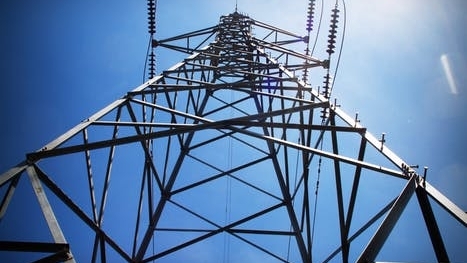Utilities are defensive, but they will still feel a COVID-19 Impact
With the utilities model, as long as they do not take on excessive debt or make bad investment choices, investors can usually counton them to keep paying dividends in good economic times and bad. But utilities are not immune to downturns; their businesses are just better able to handle the hit.
TThe world has to live with lockdown ever since COVID-19 hit us no matter which region we are in. Most people will do just about anything to keep the lights on, the refrigerator and gas stove running, the heater and airconditioning on, similarly they need water to drink and waste to be disposed. That inherent demand is one of the core reasons why electric, gas and water utilities are considered a relatively safe investment option. However, they are not risk free, it is also important to remember as utilities earnings will show the impact of COVID-19.

The coronavirus factor
Covid-19, the global pandemic has altered life. Governments around the world, Australia included, have asked people to stay home and forced non-essential businesses to shut their doors. These measures like social distancing all aim to slow the spread of COVID-19. Because of the nature of what they sell to consumers, utilities are likely to hold up reasonably well. Early indications are that the effort is working as planned, but in the process entire economies have been shut down. It is highly probable that there will be a global recession. Because of the nature of what they sell to consumers, utilities are likely to hold up reasonably well.
However, the shutdown still has wide implications for utilities. For example, Italian and Spanish electricity demand has dropped 20% and 10% respectively as a result of the lockdowns. The big driver here is on the industrial side in particular if heavy industry reduces its activity, because businesses that aren't open can’t be using as much power as they once were. Offsetting that is an uptick in consumer demand, as people are using more power because they are stuck at home (Peak demand times also shifting a little). Different regions are being impacted differently depending on the customer base and the types of industries operating inthe area.
For example, Dominion Energy US, one of RC Global’s holdings has for years seen increased demand from data centers because of the regions it serves. During its 4Q 2019 analyst call, the company specifically noted that it added 26 data centers in Virginia -- a record number. That is a key underpinning for the projected 1.2% demand growth projection for the region. With more people working from home, electricity demand from data centers should hold up well. We would expect as a result of the sales and revenue impact, to be less pronounced for Dominion Energy.
Regulated transmission utilities charge customers for their delivery services (the use of its poles and wires), essentially passing the costs of electricity directly through to customers. The core of their earnings is the service charges that have to be paid regardless of the amount of power used.
That said, the demand decline from social distancing mandates is still a big issue to watch as a city largely shut down, electricity use by businesses is probably set to plummet as mentioned above.
Utilities should maintain their track record as long as the shutdowns don't drag on for an extended period (think something like a year) or lead to drastic fundamental declines in electricity consumption.
Because of the nature of these businesses and the relatively high shareholder payouts in the industry, many utilities do not carry a lot of cash on their balance sheets. Thus, they could have difficulty adjusting to extreme and long natured changes without making downward adjustments to their dividends.
Protected, not immune
The most important thing is that the basic utility model provides for strong underlying demand, and growth and spending that are somewhat outside of the typical economic cycle. That allows these companies, generally speaking, to hold up in the face of adversity. However, that does not mean that utilities won't be impacted by the environment they operate. COVID19 is an extreme event and it will definitely have wide-ranging impacts for the economy including utilities. Investors should expect these safe haven stocks to see top and bottom-line weakness in the near-term, though some will be better positioned to deal with the impact than others based on their individual situations. Long-term investors should not get too caught up in the near-term fluctuations of the prices of these utilities
Like what you're reading? Subscribe to our top stories.
Follow us on Medium, Twitter, YouTube, and Linkedin.
Roy Chen
Chief Invesment Officer for the RC Global Infra-Energy Fund
3 Comments
-
 Dave Austin 1 day ago
Dave Austin 1 day agoAs a Special Education teacher this resonates so well with me. Fighting with gen ed teachers to flatten for the students with learning disabilities. It also confirms some things for me in my writing.
Reply -
 Christina Kray 2 days ago
Christina Kray 2 days agoSince our attention spans seem to be shrinking by the day — keeping it simple is more important than ever.
Reply
Post a comment
Like to organise a meeting
To discuss investing in our global managed equity funds.





